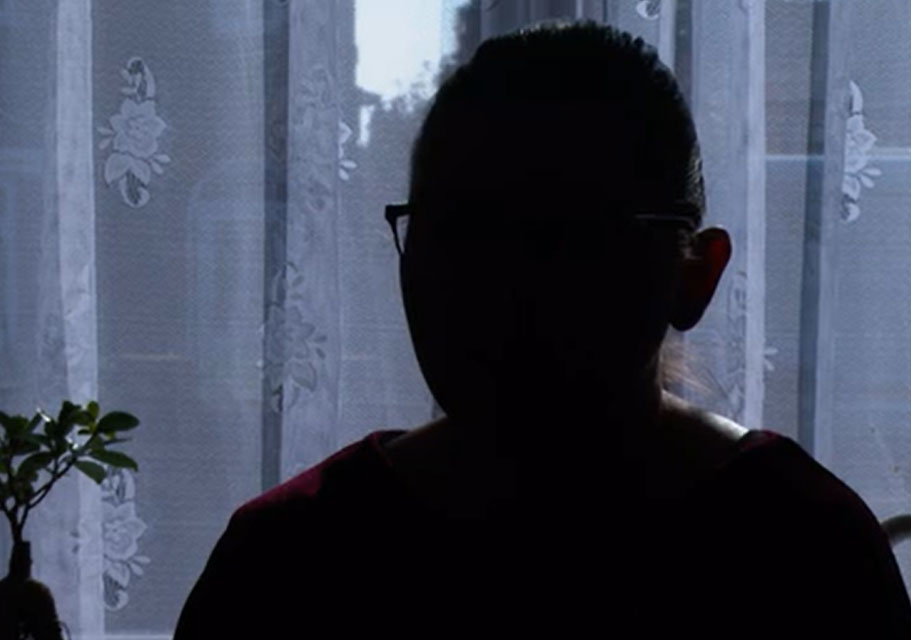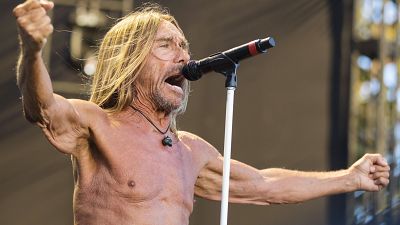SOROS FOUNDATION SEZ
Only one view prevails in Russia - that of madness and destruction | View Updated: 07/03/2022
By Alexander Soros
Opinions expressed in View articles are solely those of the authors.
As Russian forces advanced on the Ukrainian capital Kyiv, Russia’s Supreme Court finally terminated the existence of Memorial, Russia’s oldest and best-known human rights group.
The timing was a grim reminder of what is now in jeopardy as a result of Putin’s criminal aggression against Ukraine, and how much is at stake.
For even amid the brutal military attack, Ukraine still has what Russia under Putin has lost: independent media, independent judges, human rights groups, anti-corruption activists, and others who strive to make ensure the system work for everyone, even the weakest. We call that civil society. It is the essence of a robust and vibrant democracy. For Putin, it is anathema.
The Open Society Foundations have been supporting civil society across Eastern Europe and Eurasia, and around the world, for three decades. That included opening a foundation in Ukraine in 1990, the International Renaissance Foundation; the projects it has supported have included everything from ending corruption in the awarding of university degrees to supporting reforms of the public health system and developing a system of accessible legal aid.
We used to work in Russia too, supporting legal reforms, fighting against the spread of HIV/Aids, and even paying the salaries for a while of former Soviet scientists. But that was all before Putin shut everything all down. Scared by popular unrest that overturned strong-man allies in Georgia, in Yugoslavia, and in Ukraine too, Putin decided that independent civil society was a threat to his consolidation of power. He will do the same again if he prevails in Ukraine.
So what should we, as a philanthropic fund, do?
With hundreds of thousands of people streaming out of Ukraine, and millions of civilians in harm's way, the demands for humanitarian assistance are huge, and a massive humanitarian assistance operation is moving ahead.
But supporting Ukraine’s hopes for an independent, democratic future -- and more broadly challenging Vladimir Putin’s assault on liberal, democratic government across Eastern Europe and Central Asia -- involves more than a humanitarian response. It calls for a redoubling of support for the idea of an open society, and for the myriad voices and groups who stand up for human dignity and accountable government -- in Kazakhstan, in Hungary, in Poland, in Moldova, in Kyrgyzstan, in Armenia -- all voices that can be mobilised now in solidarity with Ukraine. All voices that Vladimir Putin wants to silence.
That is why we have launched the Ukraine Democracy Fund with a $25 million (€23 million) commitment to support not only Ukraine’s now beleaguered civil society groups but also those across the region. And it is why we are inviting other private funders, including philanthropists and the private sector, to contribute. We hope the fund will eventually total over $100 million (€91 million). Russia itself provides the example of what is at stake.
The closure of Memorial was just part of the silencing of independent voices as Putin gradually expanded his power -- which included the murder of some of the bravest individuals -- such as human rights activists Natalia Estemirova and Stanislav Markelov, both killed in 2009, the journalist Anna Politkovskaya, shot dead in 2006, and opposition leader Boris Nemtsov in 2015. Today, the country’s leading opposition figure, Alexei Navalny, is serving a two-and-a-half-year sentence in a penal colony, having barely survived an attempt to poison him in 2020 with the nerve agent Novichok.
So, now in Russia, there is no organised opposition to Putin’s war. No mass protests. No critical debate on TV channels entirely controlled by Putin and his cronies. In a closed society, one view prevails -- even if it is the voice of madness and destruction.
Today we cannot foresee the outcome in Ukraine, and the future fills many of us with deep foreboding, as we recall the Nazi seizure of Czechoslovakia in 1938.
But while the military struggle continues, Open Society and our partners will continue to support our Ukraine foundation and all the groups they work with, and other independent voices across the region. We will push back against the silence.
Eventually, the guns will fall silent. When they do, whatever the outcome, we know where we will stand: with those who understand that the survival of humanity, and our ability to overcome the existential challenges we face, demands not the dog-eat-dog savagery of a Vladimir Putin, but a tolerant, democratic open society.
Alexander Soros is deputy chair of the Open Society Foundations.
By Alexander Soros
Opinions expressed in View articles are solely those of the authors.
As Russian forces advanced on the Ukrainian capital Kyiv, Russia’s Supreme Court finally terminated the existence of Memorial, Russia’s oldest and best-known human rights group.
The timing was a grim reminder of what is now in jeopardy as a result of Putin’s criminal aggression against Ukraine, and how much is at stake.
For even amid the brutal military attack, Ukraine still has what Russia under Putin has lost: independent media, independent judges, human rights groups, anti-corruption activists, and others who strive to make ensure the system work for everyone, even the weakest. We call that civil society. It is the essence of a robust and vibrant democracy. For Putin, it is anathema.
The Open Society Foundations have been supporting civil society across Eastern Europe and Eurasia, and around the world, for three decades. That included opening a foundation in Ukraine in 1990, the International Renaissance Foundation; the projects it has supported have included everything from ending corruption in the awarding of university degrees to supporting reforms of the public health system and developing a system of accessible legal aid.
We used to work in Russia too, supporting legal reforms, fighting against the spread of HIV/Aids, and even paying the salaries for a while of former Soviet scientists. But that was all before Putin shut everything all down. Scared by popular unrest that overturned strong-man allies in Georgia, in Yugoslavia, and in Ukraine too, Putin decided that independent civil society was a threat to his consolidation of power. He will do the same again if he prevails in Ukraine.
So what should we, as a philanthropic fund, do?
With hundreds of thousands of people streaming out of Ukraine, and millions of civilians in harm's way, the demands for humanitarian assistance are huge, and a massive humanitarian assistance operation is moving ahead.
But supporting Ukraine’s hopes for an independent, democratic future -- and more broadly challenging Vladimir Putin’s assault on liberal, democratic government across Eastern Europe and Central Asia -- involves more than a humanitarian response. It calls for a redoubling of support for the idea of an open society, and for the myriad voices and groups who stand up for human dignity and accountable government -- in Kazakhstan, in Hungary, in Poland, in Moldova, in Kyrgyzstan, in Armenia -- all voices that can be mobilised now in solidarity with Ukraine. All voices that Vladimir Putin wants to silence.
That is why we have launched the Ukraine Democracy Fund with a $25 million (€23 million) commitment to support not only Ukraine’s now beleaguered civil society groups but also those across the region. And it is why we are inviting other private funders, including philanthropists and the private sector, to contribute. We hope the fund will eventually total over $100 million (€91 million). Russia itself provides the example of what is at stake.
The closure of Memorial was just part of the silencing of independent voices as Putin gradually expanded his power -- which included the murder of some of the bravest individuals -- such as human rights activists Natalia Estemirova and Stanislav Markelov, both killed in 2009, the journalist Anna Politkovskaya, shot dead in 2006, and opposition leader Boris Nemtsov in 2015. Today, the country’s leading opposition figure, Alexei Navalny, is serving a two-and-a-half-year sentence in a penal colony, having barely survived an attempt to poison him in 2020 with the nerve agent Novichok.
So, now in Russia, there is no organised opposition to Putin’s war. No mass protests. No critical debate on TV channels entirely controlled by Putin and his cronies. In a closed society, one view prevails -- even if it is the voice of madness and destruction.
Today we cannot foresee the outcome in Ukraine, and the future fills many of us with deep foreboding, as we recall the Nazi seizure of Czechoslovakia in 1938.
But while the military struggle continues, Open Society and our partners will continue to support our Ukraine foundation and all the groups they work with, and other independent voices across the region. We will push back against the silence.
Eventually, the guns will fall silent. When they do, whatever the outcome, we know where we will stand: with those who understand that the survival of humanity, and our ability to overcome the existential challenges we face, demands not the dog-eat-dog savagery of a Vladimir Putin, but a tolerant, democratic open society.
Alexander Soros is deputy chair of the Open Society Foundations.
















/cdn.vox-cdn.com/uploads/chorus_image/image/70615483/how_putin_falls_secondary_1bv2.0.jpg)
:no_upscale()/cdn.vox-cdn.com/uploads/chorus_asset/file/23306704/how_putin_falls_secondary_2b.jpg)
:no_upscale()/cdn.vox-cdn.com/uploads/chorus_asset/file/23307375/GettyImages_1238728652.jpg)
:no_upscale()/cdn.vox-cdn.com/uploads/chorus_asset/file/23306690/how_putin_falls_board_2c.jpg)
:no_upscale()/cdn.vox-cdn.com/uploads/chorus_asset/file/23307160/GettyImages_470588579.jpg)
:no_upscale()/cdn.vox-cdn.com/uploads/chorus_asset/file/23307061/GettyImages_955002576.jpg)